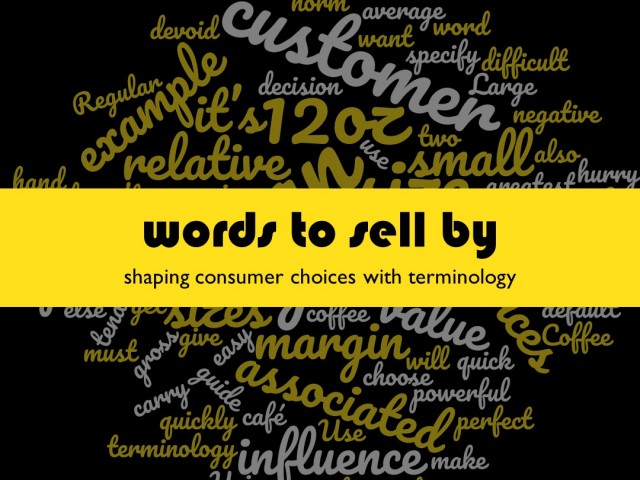Shaping customer choices with terminology
Jun 25, 2020, 6:24 AM
The terminology you use to name or describe a product can have an important influence on customer choices. Coffee sizes are the perfect example.
Using the words ‘small’ and ‘large’ are associated with relative size. The customer can quickly assess if they are below or above ‘average’ which informs their perception of value. ‘Large’ can also carry negative connotations if it is associated with an ‘excess’.
On the other hand, the word ‘regular’ is devoid of any perception of relative size and therefore it is more difficult to assess value. ‘Regular’ is just the norm; it’s what everyone else chooses. When customers are in a hurry and must make a quick decision, ‘regular’ is the easy choice – and it’s what you want them to choose because it will be the product with the greatest margin for you.
For example, if you have a café with two coffee sizes, 8oz and 12oz, call the 8oz a ‘small’ and the 12oz a ‘regular’ since the 12oz tends to have a higher gross margin. If the customer doesn’t specify a size, give them a ‘regular’ – it becomes the default.
Terminology can have a powerful influence on consumer choices. Use it wisely to guide customers to buy the products you make the most out of.

